Devin: Julia, what’s your superpower?
Julia: Oh, what is my superpower? Right now, I feel like my superpower is just embracing complexity.
Julia Roig is a professional peacebuilder. Today, she leads The Horizons Project, which is working toward connecting and organizing advocates for peace and democracy in the United States. She and her team work with people and organizations across a broad political spectrum.
She sees a real crisis threatening America. “We quite honestly need to face up to the level of threat.”
“We really do have a faction in the United States right now that is trying to subvert democracy,” Julia says. “It’s not one person. It’s not one politician. It is a system that right now happens to be a faction within the Republican Party.”
She notes that during the Jim Crow era, that same faction found a home in the Democratic party.
Julia and I recorded this conversation about a month ago, but I’m sharing this while attending the Rotary International Convention in Houston, Texas.
Service Clubs Like Rotary Are Part of the Solution
In this divisive context we find ourselves today, different people of good character may be on one side appalled by the January 6th insurrection at the U.S. Capitol, while others remain deeply sympathetic to the message and mission of the perpetrators. Julia notes that service organizations like Rotary International provide a context for people who may not see that event through the same lens to see each other as fully human.
By working shoulder to shoulder on community and global service projects, people who see the world differently see each other more fully. “Part of the answer is to not necessarily talk about January 6th, quite honestly, to find each other’s humanity again.”
The Horizons Project works with Rotary formally on peacebuilding, one of Rotary’s core missions. The project is looking at “the difference between good polarization and toxic polarization and how that shows up in the life of Rotary.”
“Part of being a service organization, part of being a member of the community is very local level stitching together those relationships because you want to be able to see that humanity in who you consider the other side,” Julia says.
An example of good polarization is Rotarians or community members coming together to work at a food pantry. “We want to raise the heat so that complacency about food insecurity isn’t tolerated anymore in your small community,” she says.
On the other hand, toxic polarization threatens Rotary Clubs and communities. “That’s when you see othering and dehumanizing language,” she says, offering some common examples, some of which can be heard even in Rotary Club meetings in some places.
“All those liberals, they’re all communists.”
“All those Trump lovers, they’re all fascists; they’re Nazis.”
That sort of language lumps people, including some who may be close to us, people in our families or Rotary Clubs or otherwise part of our communities, into categories that make them different from us. The implication is that they are inferior, less human, by virtue of their ideas. That is toxic.
Members of Rotary identify themselves as Rotarians. When Rotarians place value on this “superordinate identity,” it helps de-emphasize the divisions resulting from thinking of their fellow club members as part of a political in or out-group based on their party.
The result is that Rotarians have conversations with greater empathy and love. They begin to see the complexity in the human beings in the community.
Moderating Extreme Voices in Politics
“I do think that there is a higher level of accountability for leaders,” Julia says. We can and should expect more. Political rhetoric from today’s leaders too often falls into the traps of toxic polarization.
“One of the things that we’re working on at the Horizons Project is a strategy around what is this vision that we want in our democracy, where we trust our institutions, that we are going to make sure that we won’t stand for leaders who are othering and dehumanizing,” she says.
Julia says, “It’s also up to us to say and to organize to say, we don’t like this. We don’t want this language.” She asserts that leaders will respond to followers.
Firing up the base doesn’t require toxic negativity. “You can fire up your base voice based on a future vision of what you’re for and not necessarily what you’re against,” she says. “And there is research that that works.”
We didn’t get to this point where so much political talk is demeaning because it doesn’t work, Julia says.
“There’s an incentive structure right now because we’re all marinating in this outrage,” she says. “Feels very good, by the way. You know that, right?”
“We’re all flooded with the kind of love hormone that makes us feel closer to our in-group when we feel outraged together; we are more together when we’re outraged,” Julia says. “So, we really need to disenthrall ourselves from the outrage, and we need to find that kind of common cause.”
We come together without demonizing people who disagree with us by finding and working toward a shared vision of the future.
One of the keys to Julia’s work is her ability to use her superpower: embracing complexity.
How to Develop Embracing Complexity As a Superpower
One of the challenges we all face is that often there is good reason to be both happy and sad, discouraged and hopeful. Julia advocates “sitting with uncertainty, sitting with ambiguity, recognizing how complex the world is and letting it be both.”
“You can be both traumatized and exhausted, and you can feel hope in the future that you see your 21-year-old daughter and how engaged she is. And you can feel worried, and you still have agency to make a difference,” she says. “So, I think the superpower we need right now is to sit with complexity and still act.”
Julia recently brought two groups of people together to have a difficult conversation. The groups shared a sense of social justice objectives but approached the problem differently. On one side, she had a “group of social justice activists, people who are really on the kind of, let’s say, radical side of the spectrum.”
On the other side, she had a “group of peacebuilders who may say, ‘We want to dial down the tension.’”
The issues on the table were intense: Black Lives Matter, police reform, Supreme Court nominees. Imagine the passion in the room.
Julia’s goal was to build a bridge between the organizations. The social justice advocates were not excited to hear about wanting to engage constructively with moderates on the other side, much less the extreme voices.
At the same time, the peacebuilders who were trying to build relationships with those groups to make progress expressed their frustration at having setbacks when the activists fanned the flames.
Julia helped both sides see the other’s perspectives. “both of your strategies can be true; both of your feelings can be true. And we and we need both,” she says. “We need the bridge builders to maintain that link.” She helped the two sides work together a bit more harmoniously.
Julia offers four tactics for leaning into complexity:
Listen to podcasts from multiple communities.
Take time to hear your own thoughts on a complex topic
Remember relationships: “we can only make sense of the world with other people.”
Forgive each other; “we do the best we can with the information we have.”
If you follow Julia’s example and her four tips, you can strengthen your ability to embrace complexity; perhaps you can even make it a superpower that enables you to do more good.

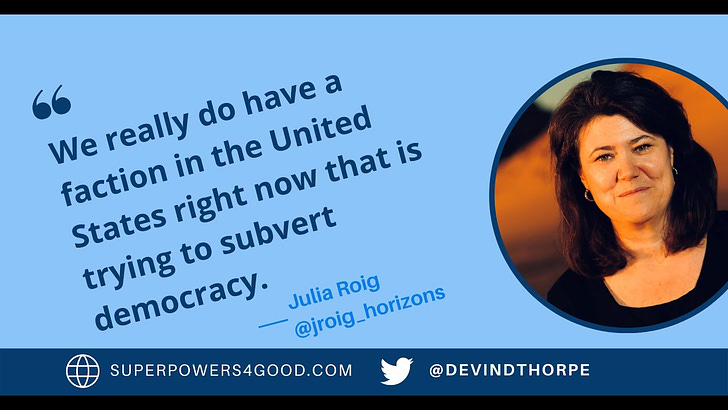


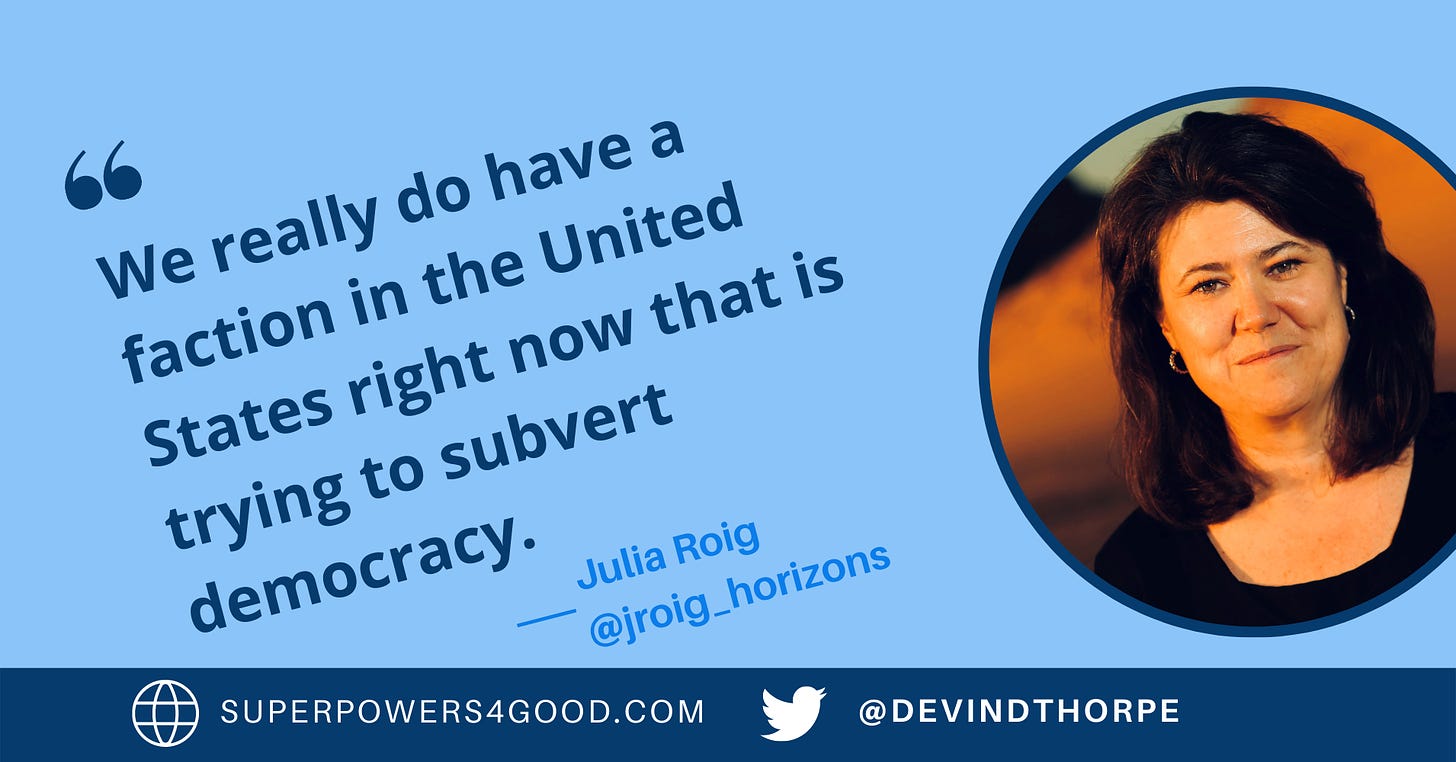
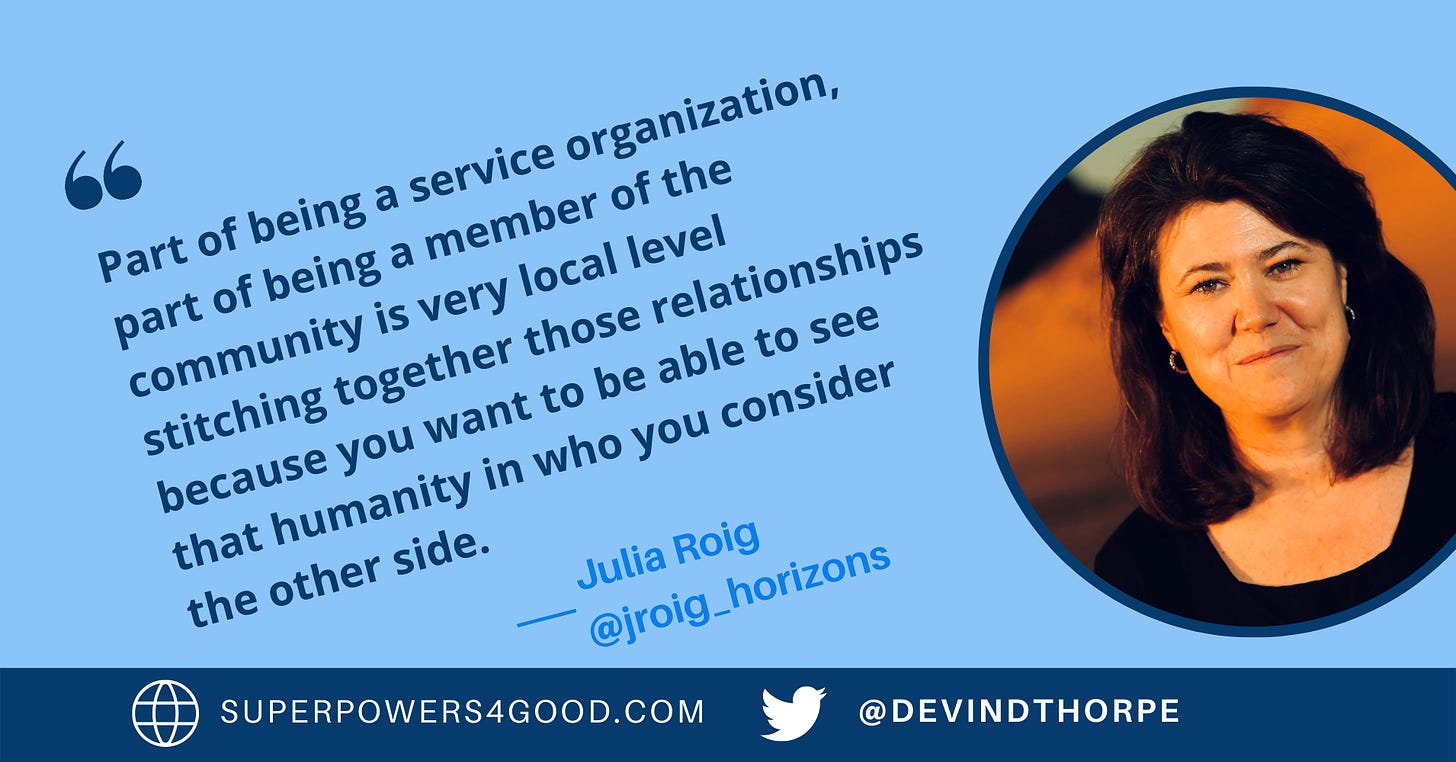
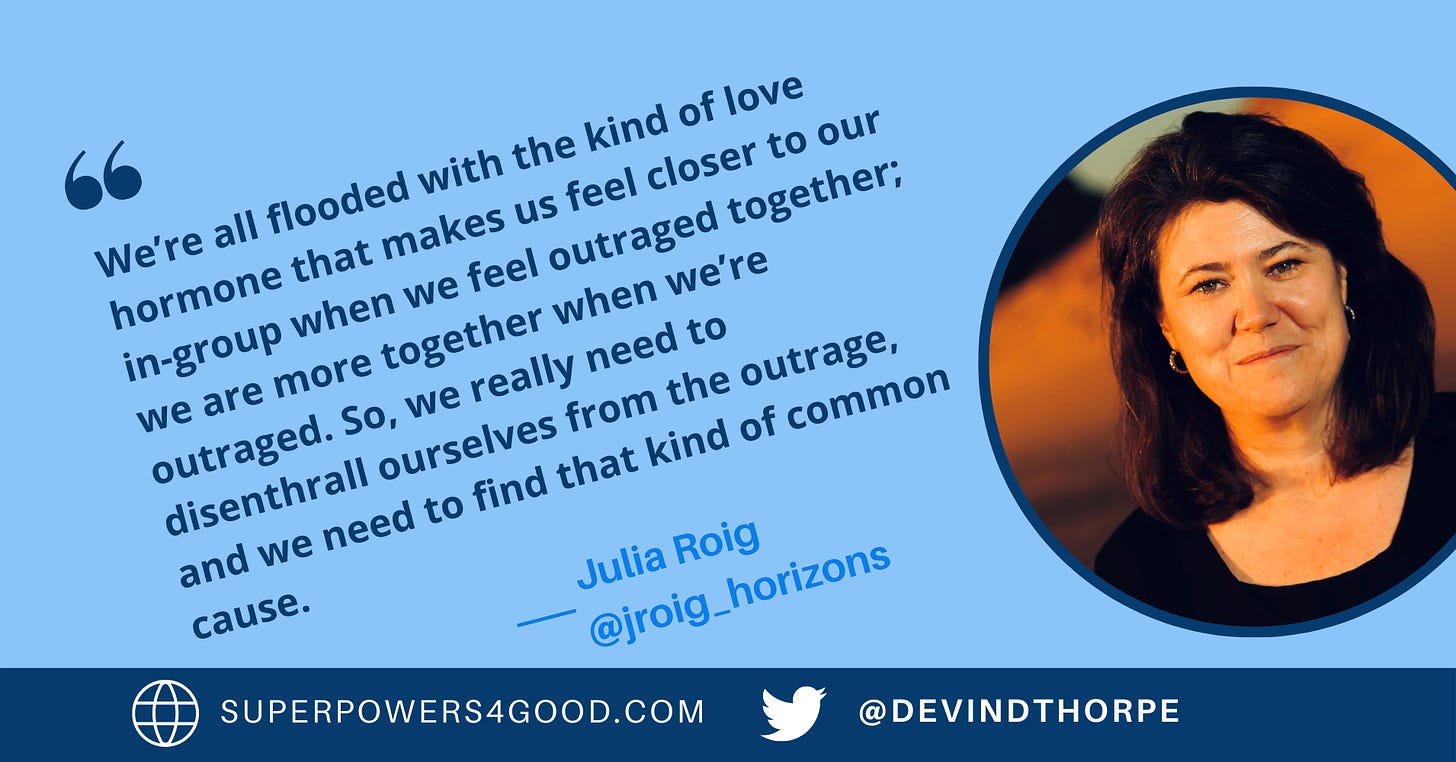



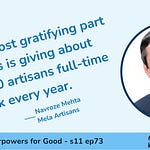











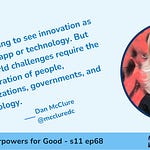


Rotary Plays Peacebuilding Roles Locally and Globally